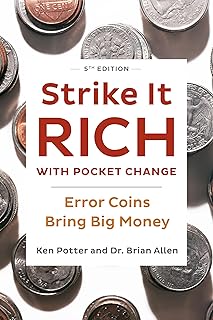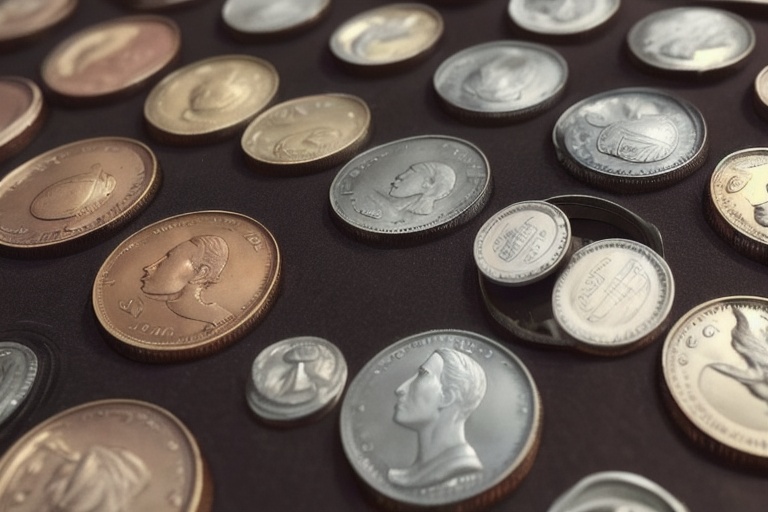Coins are more than just small, shiny objects; they are keys to the rich tapestry of history and treasures that hold a spectrum of stories within their engraved surfaces. Old coins, in particular, carry a unique allure, beckoning collectors from diverse backgrounds and interests. Whether drawn by the echo of bygone eras, the thrill of the hunt for value and rarity, or the sheer pleasure of amassing artifacts, collecting old coins can be a deeply rewarding hobby that offers diverse benefits to enthusiasts.
Coins are more than just small, shiny objects; they are keys to the rich tapestry of history and treasures that hold a spectrum of stories within their engraved surfaces. Old coins, in particular, carry a unique allure, beckoning collectors from diverse backgrounds and interests. Whether drawn by the echo of bygone eras, the thrill of the hunt for value and rarity, or the sheer pleasure of amassing artifacts, collecting old coins can be a deeply rewarding hobby that offers diverse benefits to enthusiasts.
The Financial Perspective
Many individuals are lured to coin collecting due to the tantalizing prospect of financial gain. The thrill of discovering a coin that has heaps of value is comparable to finding a hidden gem amidst the ordinary rocks. While it is true that not every coin holds substantial worth, certain rare pieces are valued highly in the market, and can fetch extraordinary prices at auctions. For example, the 1933 Saint-Gaudens Double Eagle, a U.S. gold coin, was sold at auction for an astonishing $7.59 million.
Savvy collectors know that with diligent research, patience, and sometimes a bit of luck, they can identify and acquire coins that may appreciate in value over time. However, the quest for valuable coins should also involve consulting with experts who can offer their seasoned perspectives. A nuanced understanding of factors such as mintage, condition, rarity, and demand is imperative for anyone aiming to make profitable acquisitions.
A Journey Through Time
Coin collectors are often history enthusiasts who revel in the stories that old coins can reveal about the political, economic, and social contexts of their time. The craftsmanship of a coin, its emblems, and the marks of its travels can be a microcosm of the era it hails from. For instance, by studying an old Roman coin, one might gain insights into the empire's vast trade networks, economic might, and illustrious leaders.
In essence, old coins are pieces of history that you can hold in your hand, connecting you to civilizations and epochs long past. They are artifacts that open windows to times when these coins were used in daily commerce, carried in the pockets of people whose lives we can only imagine now.
The Educational Aspect
Collecting coins is not only an engaging pastime but also a constant learning experience. It leads to a deeper comprehension of numismatics—the study of money and its history. Collectors gradually become amateur historians and economists, developing expertise in areas such as minting processes, design evolution, and understanding market fluctuations.
Moreover, the hobby helps enthusiasts hone their analytical skills, training them to spot mint marks, errors, and even counterfeit coins. It is an intellectual pursuit that sharpens the mind and broadens one's grasp of history, commerce, metallurgy, and art.
Conservation and the Metal Content
Old coins also contribute to sustainability through the conservation of metals. The composition of coins often includes metals like copper, nickel, zinc, and sometimes precious metals such as silver and gold. When coins cease to be in circulation, these metals can be recycled, reducing the need for mining and thus benefiting the environment.
The intrinsic metal value of coins often adds another layer to their collectability. Precious metals such as gold and silver have intrinsic values that can often bolster the worth of a coin quite independently of its numismatic value, based on market prices of these metals.
Personal Fulfillment and Legacy
Developing a collection is a labor of love that requires dedication, persistence, and the delight of acquiring new pieces. Each new addition represents a small victory, a tangible result of one's commitment and expertise. The pride and sense of achievement derived from curating a personal collection provide an immense personal reward.
Additionally, for many collectors, coin collecting is a cherished tradition passed from one generation to the next, creating a family legacy. The act of sharing this passion with children or grandchildren not only fosters familial bonds but also instills a sense of continuity and heritage.
Why Collect Old Coins?
To embark on the journey of coin collecting is to embrace a hobby that is as varied in its pleasures as it is in its rewards. It is an adventure that offers financial prospects, historical exploration, educational growth, and a hobby that encourages preservation. Whether the aim is to invest, learn, or simply relish the thrill of the chase, coin collecting can be a passion that enriches your life in countless ways.
For those ready to dive into the worlds of numismatics and history, the advice is simple: begin your collection, immerse in the past, revel in the narratives each coin encapsulates, and most importantly, enjoy every step of the voyage.
Information for this article was gathered from the following source.




